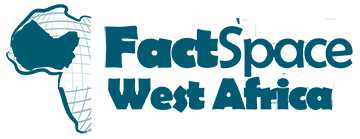Principles
FactSpace West Africa is a non-partisan, news fact-checking and verification organisation.
Our team of researchers strive to uphold the principles of ethical journalism by promoting truth and accuracy, independence, fairness and impartiality, humanity, and transparency in the fact-checking/reporting process.
Members of our fact-checking projects have no current or past direct involvement in political or advocacy organizations. FactSpace West Africa will also ensure that future employees will not be hired if they have – in the past or at present – had an active role in any political party.
Non-partisanship is crucial in our work and it is frequently discussed at meetings. Team members are regularly reminded to be wary of their communication on social media. We do not support any political party.
FactSpace West Africa is a signatory to the International Fact-Checking Network (IFCN) Code of Principles. The code of principles of IFCN at Poynter is a series of commitments organizations abide by to promote excellence in fact-checking.
The commitments that IFCN signatory organisations abide by are:
- 1. A commitment to Non-partisanship and Fairness
- Signatory organizations fact-check claims using the same standard for every fact check. They do not concentrate their fact-checking on any one side. They follow the same process for every fact check and let the evidence dictate the conclusions. Signatories do not advocate or take policy positions on the issues they fact-check.
- 2. A commitment to Transparency of Sources
- Signatories want their readers to be able to verify findings themselves. Signatories provide all sources in enough detail that readers can replicate their work, except in cases where a source’s personal security could be compromised. In such cases, signatories provide as much detail as possible.
- 3. A commitment to Transparency of Funding & Organization
- Signatory organizations are transparent about their funding sources. If they accept funding from other organizations, they ensure that funders have no influence over the conclusions the fact-checkers reach in their reports. Signatory organizations detail the professional background of all key figures in the organization and explain the organizational structure and legal status. Signatories clearly indicate a way for readers to communicate with them.
- 4. A commitment to Transparency of Methodology
- Signatories explain the methodology they use to select, research, write, edit, publish and correct their fact checks. They encourage readers to send claims to fact-check and are transparent on why and how they fact-check.
- 5. A commitment to an Open & Honest Corrections Policy
- Signatories publish their corrections policy and follow it scrupulously. They correct clearly and transparently in line with the corrections policy, seeking so far as possible to ensure that readers see the corrected version.


